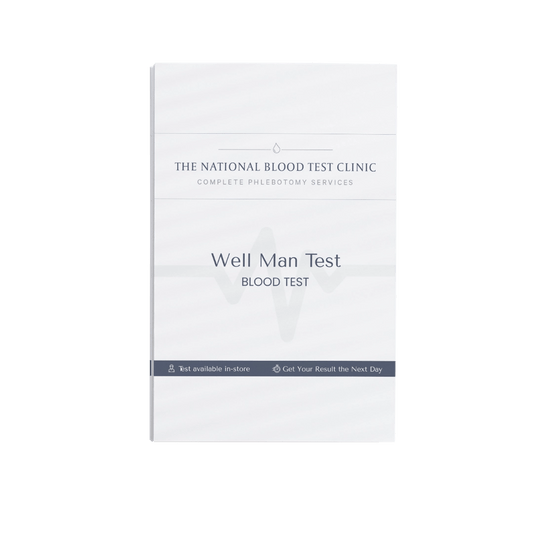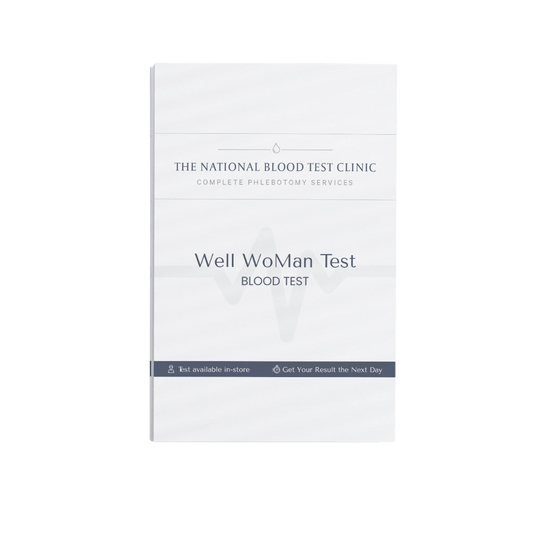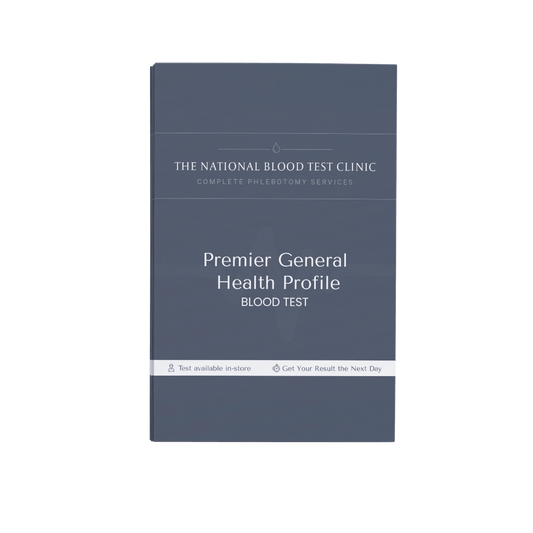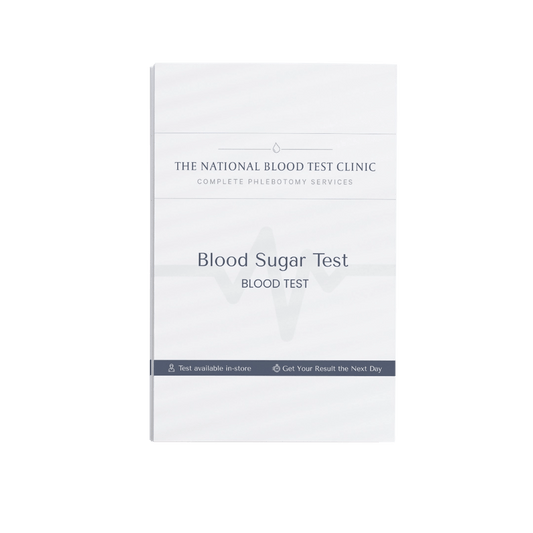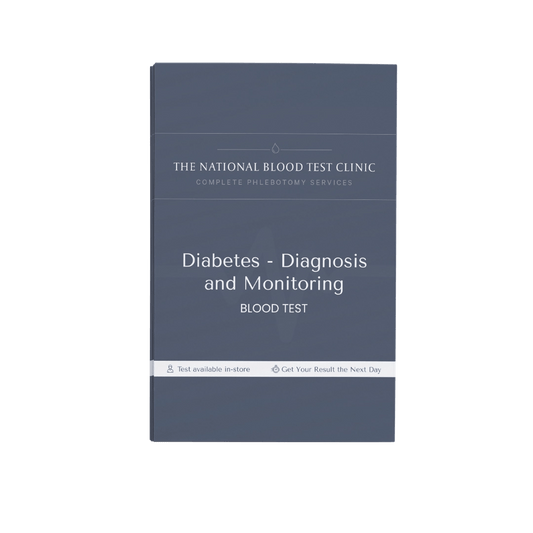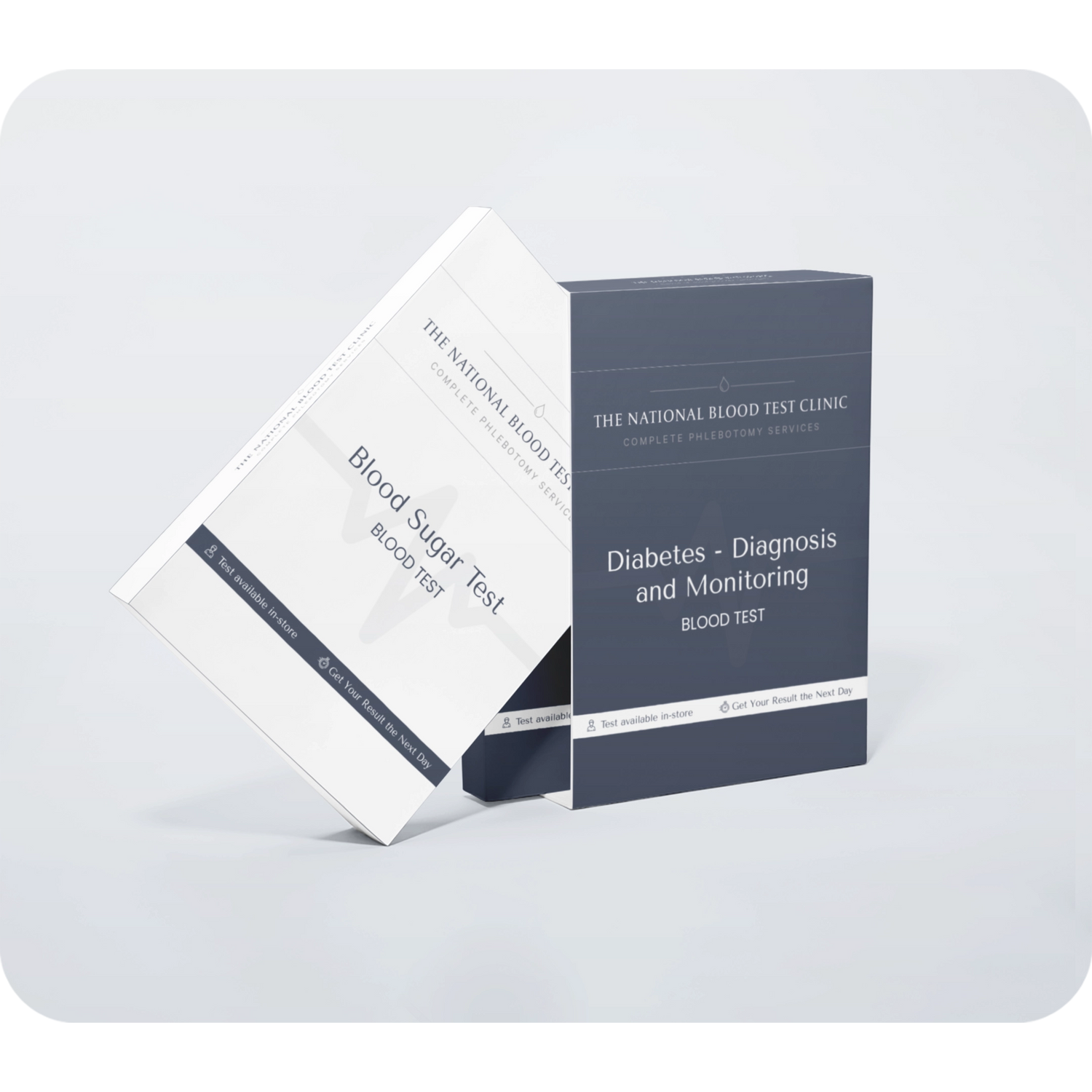
Diabetes & Blood Sugar
Managing diabetes and monitoring blood sugar levels are essential for long-term health. The National Blood Test Clinic’s Diabetes and Blood Sugar tests provide accurate insights into glucose control, insulin response, and related biomarkers, helping you manage your glucose level.
Whether you are looking for a blood test for diabetes, want to screen for prediabetes, or need ongoing monitoring with a home blood sugar test kit, we offer a comprehensive range of tests specifically designed for your needs.
Why Choose Our Diabetes and Blood Sugar Tests?
-
Accurate measurement of insulin sensitivity, blood sugar & HbA1c.
-
Options for at-home testing with blood sugar test kits and phlebotomy testing.
-
Screening for complications linked with Type 1 and Type 2 Diabetes.
-
Tests include Fasting & Random Glucose Tests and HbA1c
-
Well Man Test: Comprehensive Health Screening for Men
Regular price £123.00 GBPRegular priceUnit price / per -
Advanced Well Woman Test
Regular price £126.00 GBPRegular priceUnit price / per -
Premier General Health Profile
Regular price From £106.68 GBPRegular priceUnit price / per -
Blood Sugar Test | HbA1c Test
Regular price £62.00 GBPRegular priceUnit price / per -
HbA1c Test for Diabetes
Regular price From £55.00 GBPRegular priceUnit price / per
Frequently Asked Questions (FAQs)
What is the best blood test for diabetes levels?
The most commonly used blood test for diabetes levels is the HbA1c test, which shows your average blood sugar control over the last 2–3 months. Fasting blood glucose is also used for diagnosing diabetes and prediabetes.
How accurate are home blood sugar test kits?
Home blood sugar test kits from The National Blood Test Clinic are reliable for monitoring daily blood sugar levels. However, they should not replace laboratory tests like HbA1c or fasting glucose when diagnosing diabetes.
What is a non-reducing sugar test?
A non-reducing sugar test is a urine test used to detect unabsorbed sugars that may indicate issues with sugar metabolism or absorption. While not a primary diagnostic tool for diabetes, it can provide supporting information about abnormal sugar levels.
How often should I do a blood sugar test?
If you have diabetes, you may need to check your blood sugar daily using a home blood sugar test kit, especially if you are on insulin. For routine monitoring, HbA1c testing is recommended every 3–6 months.
Who should get tested for diabetes?
People experiencing symptoms like fatigue, excessive thirst, frequent urination, or unexplained weight loss should consider a blood test for diabetes levels. Also, individuals with a family history of diabetes, obesity, or high blood pressure are at higher risk and should get screened earlier.
Can I monitor diabetes at home without going to a clinic?
Yes, you can use at-home sugar test kits to check glucose levels conveniently. For more comprehensive insights, such as HbA1c or oral glucose tolerance testing, you’ll need a laboratory-based blood test.
Subscribe to our emails
Be the first to know about new collections and exclusive offers.

